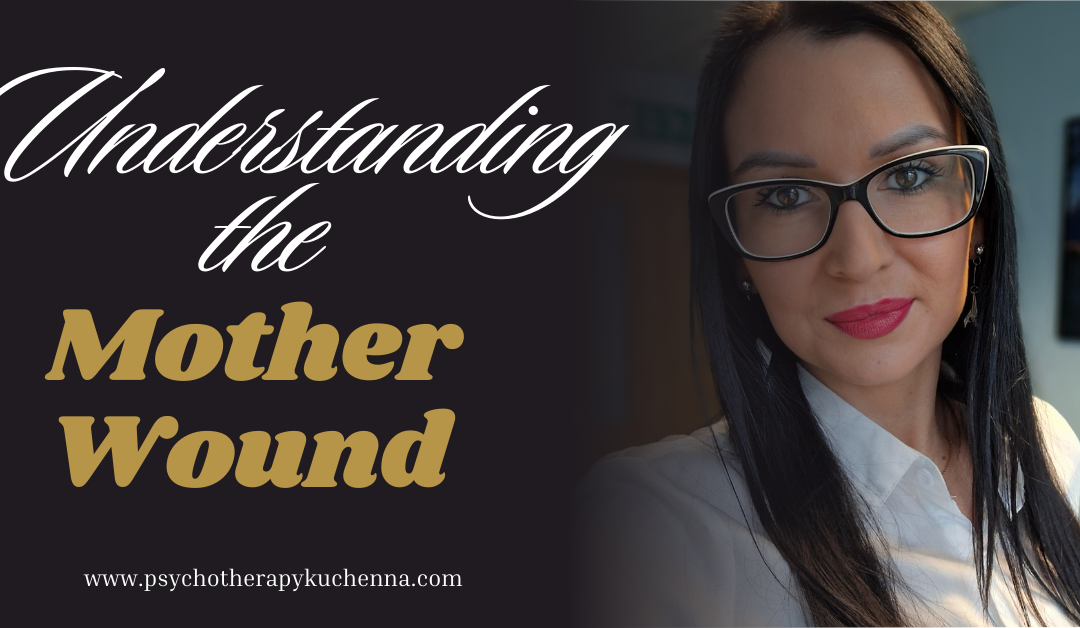The term “mother wound” refers to the emotional, psychological, and sometimes even physical imprint left by unresolved pain, neglect, or unmet needs in the relationship with one’s mother. While the phrase might suggest blame, the mother wound is often the result of generational trauma, societal pressures, and systemic inequalities that affect mothers and, in turn, their children. This wound does not solely pertain to women; its impact ripples into the lives of men and women alike, influencing their behaviours, relationships, and overall sense of self.
What is the Mother Wound?
The mother wound is not about a singular event but a cumulative experience of unmet emotional needs during childhood. It may stem from a mother’s inability to provide emotional security, validation, or affection due to her own unhealed wounds, societal demands, or personal struggles. This is not to assign blame but to recognize the patterns of pain that can perpetuate across generations.
The Manifestation of the Mother Wound in Men
For men, the mother wound often manifests as challenges in emotional expression and intimacy. Many men are raised in environments where emotional vulnerability is discouraged, leading to internalized shame or a sense of inadequacy. This suppression can trace back to the relationship with their mother, especially if she was emotionally unavailable, overbearing, or excessively critical.
Here are some common behaviors that may stem from the mother wound in men:
- Difficulty Expressing Emotions: Men may struggle to identify or articulate their feelings, fearing judgment or rejection.
- Perfectionism: A mother’s high expectations or critical nature can drive a man to seek validation through external achievements.
- Fear of Intimacy: An inconsistent emotional connection with their mother can lead men to fear vulnerability, making it difficult to form deep, meaningful relationships.
- Anger and Resentment: Unresolved pain may manifest as anger, often misdirected at partners or authority figures.
- Overcompensation in Masculinity: To cope with feelings of inadequacy, some men may adopt hyper-masculine behaviors to mask their vulnerability.
The Manifestation of the Mother Wound in Women
For women, the mother wound often manifests as a struggle with self-worth, identity, and the internalization of societal expectations. Women may feel the weight of their mother’s unfulfilled dreams or carry the pressure to conform to traditional roles that limit their sense of agency.
Some behaviors stemming from the mother wound in women include:
- People-Pleasing: A need for approval, often learned from a mother who prioritized others’ needs over her own, can lead to difficulty asserting boundaries.
- Self-Doubt: If a mother was overly critical or emotionally distant, a woman might internalize feelings of not being “good enough.”
- Overfunctioning in Relationships: Women may overcompensate by taking on caregiving roles, mirroring their mother’s sacrifices, often at their own expense.
- Fear of Rejection: An inconsistent emotional connection with their mother can make women overly sensitive to rejection or abandonment.
- Comparison and Competition: A strained relationship with their mother might lead women to compare themselves to others, feeling perpetually inadequate.
Healing the Mother Wound
Healing the mother wound is a deeply personal and transformative process. It begins with awareness and compassion—both for oneself and for the mother, who likely carried her own unhealed wounds. While no single approach fits all, these steps can help men and women on their journey:
- Acknowledge the Wound: Recognizing the existence and impact of the mother wound is the first step toward healing.
- Practice Self-Compassion: Understand that your behaviors and feelings are valid responses to past experiences.
- Seek Therapy: A trained therapist can provide tools and support to process unresolved pain and establish healthier patterns.
- Set Boundaries: Learning to assert your needs and protect your emotional well-being is crucial.
- Break Generational Patterns: Commit to breaking the cycle of trauma by cultivating healthier emotional habits and relationships.
Moving Forward
The mother wound is a universal experience, as no relationship is perfect. Understanding its impact can empower individuals to break free from patterns of pain and cultivate a deeper sense of self-worth and authenticity. By healing these wounds, both men and women can build healthier relationships with themselves and others, fostering a legacy of love, connection, and emotional resilience for future generations.
Links:

